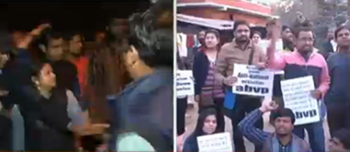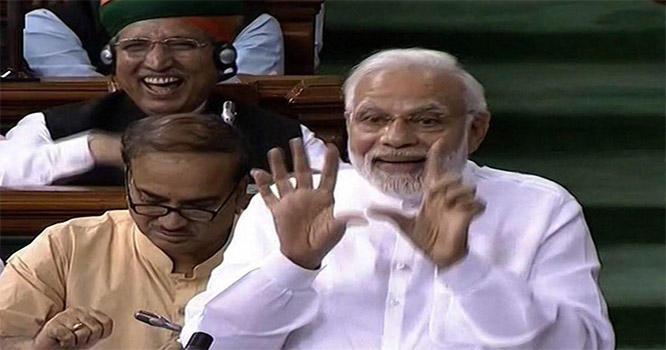New Delhi: Searches conducted by the Enforcement Directorate (ED) under the anti-money laundering law rose by 86 times while arrests and attachment of assets jumped by around 25 times in the ten years since 2014 compared to the preceding nine-year period, according to official data.
An analysis of the data by PTI for the last ten years, between April 2014 and March 2024, against the nine years from July 2005 to March 2014 presents a picture of the federal agency's "intensified" action under various sections of the Prevention of Money Laundering Act (PMLA).
The PMLA was enacted in 2002 and implemented from July 1, 2005, to check serious crimes of tax evasion, generation of black money and money laundering.
While the opposition parties have alleged that the ED's action during the last decade was part of the BJP-led central government's "oppressive" tactics against its rivals and others, the Union government and the ruling party have asserted that the agency is independent and its investigations were purely based on merit and under the mandate to act against the corrupt.
The ED booked as many as 5,155 PMLA cases during the last ten years as compared to a total of 1,797 complaints or Enforcement Case Information Reports (ECIRs or FIRs) filed during the preceding period (2005-14), a jump of about three times, the data said.
The data shows that the agency also got its first conviction starting the 2014 fiscal and it has, till now, got 63 persons punished under the anti-money laundering law.
The ED conducted 7,264 searches or raids in money laundering cases across the country during the 2014-2024 period as compared to just 84 in the preceding period - a jump of 86 times.
It also arrested a total of 755 people during the last decade and attached assets worth Rs 1,21,618 crore as compared to 29 arrests and Rs 5,086.43 crore worth of attachments respectively during the last compared period, the data stated.
The arrests are 26 times more, while figures related to the attachment of properties are 24 times higher.
The agency issued 1,971 provisional attachment orders for various types of immovable and movable assets during the last decade as compared to 311 such orders taken out in the preceding comparable period.
It got about 84 per cent of the attachment orders confirmed from the Adjudicating Authority of the PMLA during 2014-24 as compared to 68 per cent confirmations from the same authority during the last compared period.
The filing of charge sheets also saw a jump of 12 times in the last decade with 1,281 prosecution complaints filed by it before courts as against 102 during the preceding period.
The data said the ED secured conviction orders in 36 cases from various courts leading to the prosecution of 63 persons and a total of 73 charge sheets were disposed of during the last decade.
No conviction was obtained by the agency nor any charge sheet was disposed of under the anti-money laundering law during the 2005-14 period, according to the statistics.
The agency also got the court's permission to confiscate assets (attached as proceeds of crime under the PMLA) worth Rs 15,710.96 crore and it also restituted properties (including bank funds) of Rs 16,404.19 crore (out of the total amount under confiscation) during the last decade.
As there were no convictions during the preceding nine-year period, no confiscation of assets and resultant restitution could take place, as per the data.
The ED is also empowered to seize cash under the PMLA and the data said the agency froze more than Rs 2,310 crore worth of Indian and foreign currency during the last ten years as compared to a figure of Rs 43 lakh during the preceding period.
The agency also got notified a total of 24 Interpol red notices for apprehension of various accused who left India and hid in foreign shores and sent 43 extradition requests during 2014-24.
No such action was taken by the agency during the preceding period.
Four persons were extradited to India during the last ten-year time period while similar orders were secured against businessmen Vijay Mallya, Nirav Modi and Sanjay Bhandari. The three are based in the UK and the ED is trying to bring them back to the country as all the accused are contesting the orders issued against them.
"These statistics reflect the intensive drive that the ED has undertaken to check money laundering crimes," an agency official said.
The ED investigates financial crimes under two criminal laws -- the Prevention of Money Laundering Act (PMLA) and the Fugitive Economic Offenders Act (FEOA) -- apart from the civil provisions of the Foreign Exchange Management Act (FEMA).
The FEOA was enacted by the Narendra Modi government in 2018 to cripple those who are charged with high-value economic frauds and abscond from the country to evade the law.
The ED, as per the data, filed a total of 19 such applications before the designated special PMLA courts in the country following which 12 persons have been declared fugitive economic offenders.
It also confiscated assets worth Rs 906 crore under the said law by the end of the last fiscal on March 31.








Comments
@ George its clear first of all you are enemy of Islam you will never support our beloved country india bcos you people support America & israel we Muslims are proud of our country india mera bharath mahan
George,Bangalore
How you jumped to conclusion that it is a Muslims protest?
Clear incident which proves Muslims are doing and supporting anti India activities. we support abvp. let us see how Muslim commentators justify this.
Add new comment